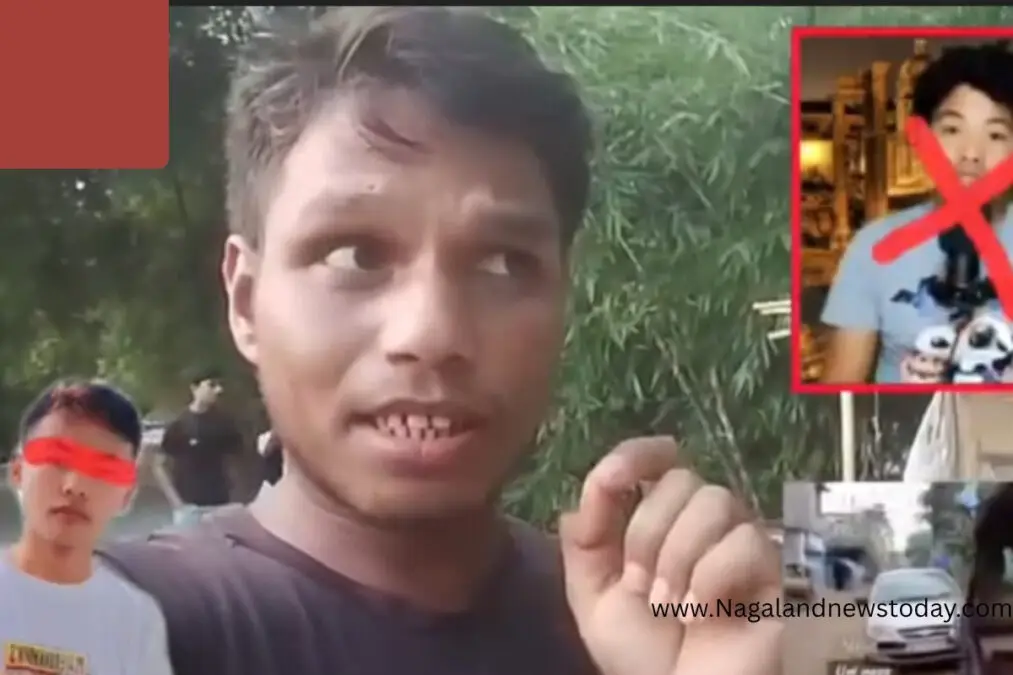Published by Aloto Naga | July 29, 2025
A video featuring a young non-local man has gone viral across Nagaland, especially on Facebook pages and WhatsApp groups, where he is seen threatening Naga people and spreading misinformation about the region’s history and legal protections. Also Read Non-Local’s Threat to Naga People Sparks Outrage
The video is a direct response to another clip by a local Naga youth, who had earlier urged Nagas to be cautious and united in the face of rising non-local dominance in Dimapur. He had pointed out that local businesses, markets, and even residential areas are now mostly run or occupied by non-Nagas, and that Naga identity is slowly being erased in their own homeland.
“We go outside and don’t see our own people anymore. It’s mostly non-locals everywhere,” the Naga speaker had said in his original video.
Non-Local Claims Dimapur Doesn’t Belong to Nagas
In his reaction video, the non-local youth—allegedly from Assam—makes provocative claims that have infuriated many:
- He says Dimapur does not belong to the Naga people, but instead to the Dimasa community.
- He calls Nagas “the worst people in India” and generalizes an entire community with disrespectful language.
- Referring to Naga citizens as “children,” he arrogantly tells them to “listen carefully.”
He also warns that if Assam decides to block its border, Nagaland would collapse, because the state is dependent on transport routes through Assam. This statement is widely interpreted as a direct threat of economic blockade and isolation.
Article 371(A): A Constitutional Safeguard
What the non-local speaker seems unaware of—or deliberately ignores—is that Nagaland is protected under Article 371(A) of the Indian Constitution, which guarantees special autonomy to the state. Among many provisions, it allows:
- Only Nagas to own land and property
- Protection of Naga customs, laws, and social practices
- State control over civil and criminal justice for local issues
The video, therefore, not only disrespects Naga sentiments but also challenges a constitutionally recognized legal framework.
Calls for Legal Action Against Hate Speech
In the video, the non-local speaker goes further to suggest that Naga police and authorities should arrest locals who oppose non-local expansion in Dimapur. He accuses Naga people of disturbing the peace and unfairly targeting outsiders—despite the fact that many such laws are enforced by the state itself.
He ends the video with what he calls a “final warning” to Naga people to change their attitude or face consequences. His tone is hostile, misinformed, and clearly threatening.
Why This Matters
Dimapur is Nagaland’s commercial capital, a melting pot of communities, but it is still part of Nagaland’s protected territory. The speaker’s claims not only attack Naga identity but also attempt to rewrite regional history.
The viral nature of this video has triggered intense discussion online, with many demanding:
- Legal action against the non-local speaker for hate speech
- A public response or clarification from Dimapur district authorities
- Stronger regulation of provocative and false content on social media platforms
Conclusion
This viral video has exposed a growing tension between local identity and unchecked demographic shifts in Nagaland’s urban centers. While peaceful coexistence is ideal, any speech that incites hatred, disrespects indigenous communities, or spreads falsehoods must be dealt with seriously under the law.
The people of Nagaland have every right to protect their land, culture, and future within the bounds of the Indian Constitution.


